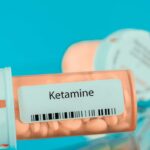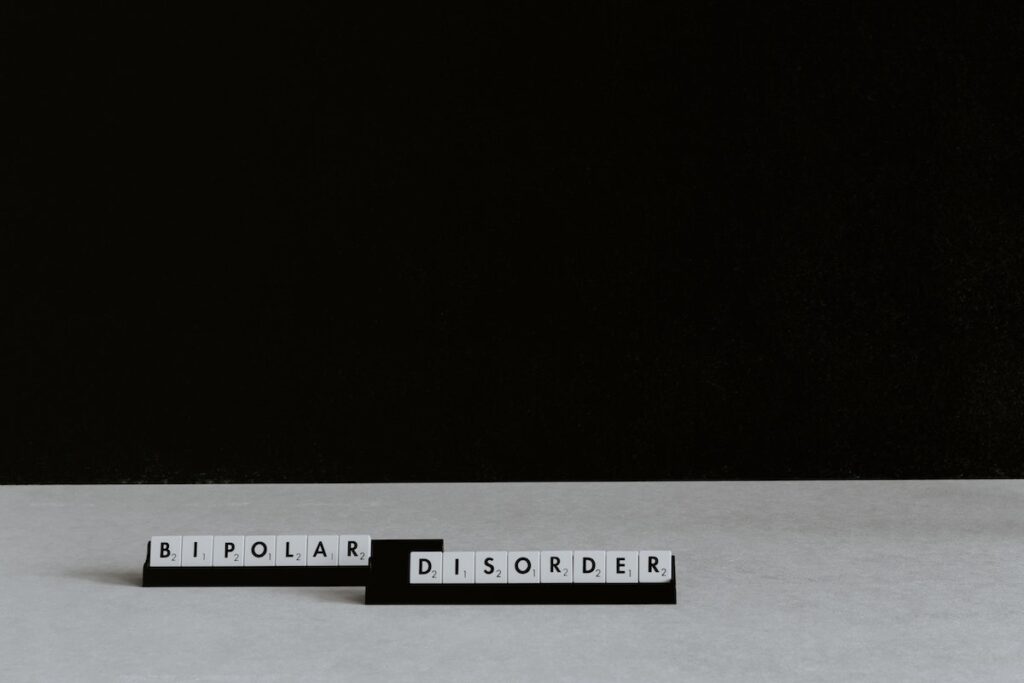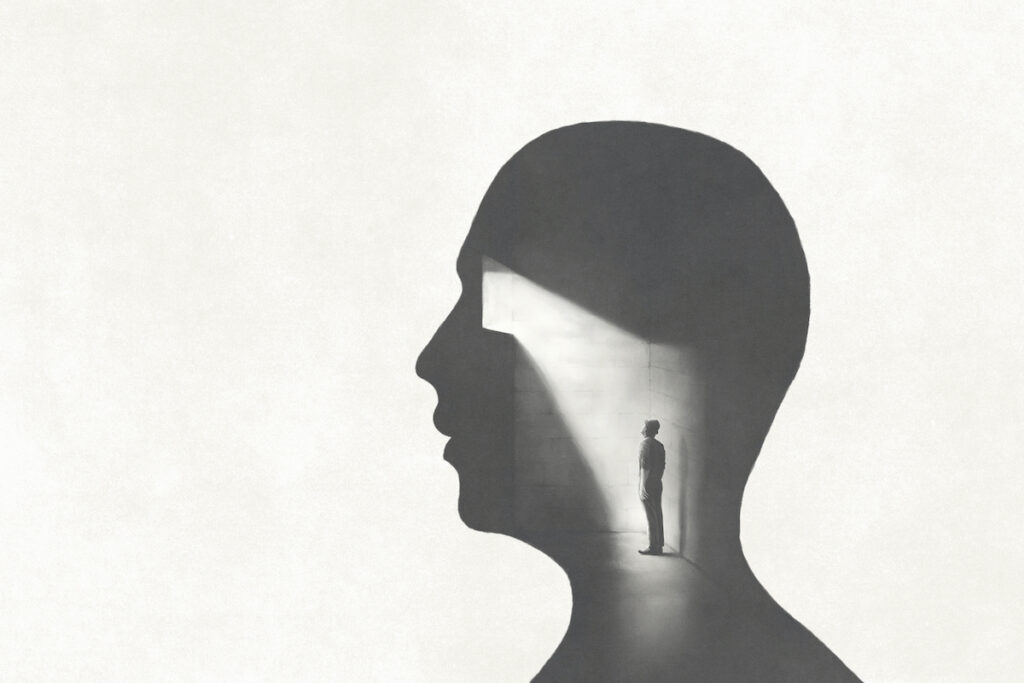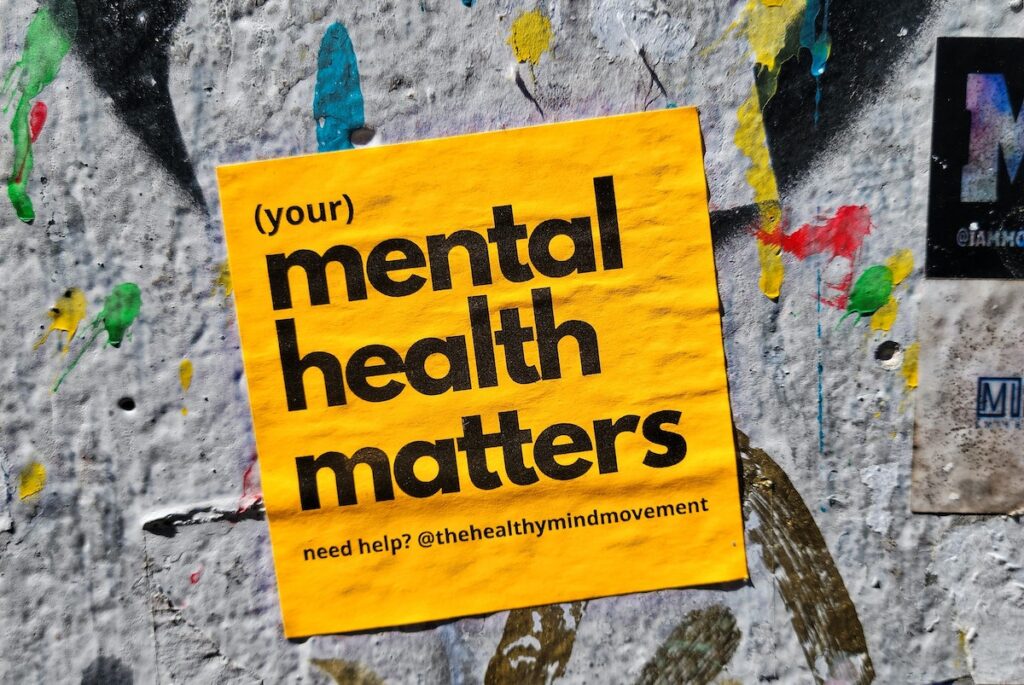
Suicide is a leading cause of death. There were around 5,500 deaths by suicide registered in England and Wales (ONS, 2021); the numbers worldwide are around 800,000 (WHO, 2016). Suicidal acts are preceded by suicidal ideas, though most suicidal ideas will not lead to a suicidal act. It is a challenging area to study and we have limited evidence-based options for treating people who are experiencing a suicidal crisis.
Ketamine has been shown to have rapid effects on depressive symptoms in unipolar depression (Yavi et al., 2022). There’s also been some data to suggest it has an effect on suicidal ideation, possibly independently of its effect on other depressive symptoms. (Witt et al., 2020). However, many previous studies weren’t designed to test a hypothesis of ketamine’s effect on suicidal ideation and so, this study aimed to improve on that.
The authors hoped to examine the effect of ketamine on suicidal ideation in three groups of patients: those with a bipolar diagnosis, those with a depressive disorder, and those with another main diagnosis. They hypothesised that ketamine would be better than placebo for inducing remission of suicidal ideation at day 3 and that this would persist over 6 weeks.

Ketamine, which has some emerging evidence as a treatment for difficult-to-treat depression, may have a beneficial effect on suicidal ideation.
Methods
This was a six-week, double-blind, randomised placebo controlled study undertaken in seven hospitals in France.
Participants were French-speaking adults who were voluntarily admitted to the hospital psychiatrically for suicidal ideation (based on Clinician rated scale of suicidal ideation (SSI) total score >3).
Key exclusion criteria were having a history of psychosis, substance dependence or evidence of use of illicit substances (other than cannabis) and/or an unstable physical illness or physical contraindication to ketamine.
Participants and investigators were blinded to the study arm. Participants were randomised to receive a 40-minute IV infusion of 0.5mg/kg ketamine or a saline solution, in addition to their current treatment. They received the second ketamine infusion 24 hours later. Follow-up was for six weeks, with frequent assessments in the first 3 days after infusion.
The primary outcome was the rate of patients with a clinical-rated SSI score <=3 (full suicidal remission) at day 3 in each diagnostic group. The SSI is a scale assessing suicidal ideation based on 19 items, maximum score of 38.
Results
The trial recruited 156 participants, who were patients being admitted to a psychiatric ward. These were the groups:
| Placebo | Ketamine | |
| Bipolar disorder | 26 | 26 |
| Depressive disorder | 30 | 26 |
| Other diagnoses | 27 | 21 |
Most patients had a past history of undertaking a suicidal act and had severe suicidal ideation when entering the trial. The ‘other diagnoses’ group was a heterogeneous group, including mainly people with different anxiety disorders (PTSD, panic disorder, agoraphobia, social phobia) and eating disorders.
Primary outcome: suicidal ideation at day 3 measured by SSI
63% of patients in the ketamine arm vs 31.6% of patients in the placebo arm had “reached full remission of suicidal ideas at day 3” (odds ratio 3.7 [1.9 to 7.3] p<0.001). Interestingly, the remission in suicidal ideation occurred 40 minutes post-infusion.
The results appeared to be driven by a big difference in the bipolar disorder group (84.6% post-ketamine vs 28% post-placebo). The differences in remission in the other groups were not significant: depressive disorder group: 42.3% post-ketamine vs 35.7% post-placebo; ‘other diagnoses’: 61.9% post-ketamine vs 30.8% post-placebo.
Secondary outcomes
These generally showed a greater reduction in scores in the ketamine group versus the placebo group (e.g. hopelessness, depression scores).
By the end of the 6 weeks of the trial, suicidal remission post-ketamine was 69.5% vs 56.3% post-placebo; which was not statistically significant.
Adverse events
There were 6 suicide attempts in the ketamine arm (8.2%) and 8 in the placebo arm (9.8%); one patient in the ketamine arm, unfortunately, died by suicide. These events occurred in people with a poor response to ketamine.
There were no increases in mania symptoms. Expected common side effects of ketamine (sedation, depersonalisation, nausea) occurred at a greater frequency than in the placebo group.

This trial indicated more remission of suicidal ideation in the short term (3 days) in those receiving two ketamine infusions, compared to those receiving a placebo infusion.
Conclusions
In this randomised controlled trial, two infusions of IV ketamine were associated with remission in suicidal ideation at 3 days, compared to placebo, in a group of patients with a mix of diagnoses. The effects were most evident in patients with bipolar affective disorder.
Importantly, there were no increases in symptoms of mania in patients with bipolar disorder. It can be a worry that antidepressant treatment in patients with bipolar disorder can trigger a ‘switch’ to a manic state.
It is notable that the rate of suicide attempts was similar between the ketamine and placebo group at 6 weeks. This seemed to occur in patients who had had a minimal response to ketamine. We must be vigilant for a further deterioration in hope in patients receiving a ‘new and exciting’ treatment, which does not work for them.

The effects of ketamine on suicidal ideation appeared most evident in people with bipolar affective disorder.
Strengths and limitations
The protocol for this study was pre-registered on clinicaltrials.gov and the changes in protocol are justifiable. This is a strength of open science. The authors conducted power calculations and recruited sufficient patients for this. However, the diagnostic sub-groups had small numbers and this may have limited the authors finding a difference, particularly in the ‘other diagnoses’ group.
There is a huge unmet need in relieving symptoms and distress acutely in patients presenting to the hospital with suicidal ideation. Moreover, patients with current suicidal thoughts and behaviours are often excluded from research. This study demonstrates the feasibility of appropriately managing risk in this population of patients. A further strength is that participants in the study included nonpsychotic bipolar, depressive, and other disorders. As such, it adds to the relatively scarce evidence base of ketamine in bipolar depression.
In terms of limitations, in drugs with a strong psychoactive effect like ketamine, it is difficult to separate out the effect of the drug from a placebo effect and expectancy effects caused by unblinding. As the authors acknowledge, more recent ketamine studies often use midazolam as a psychoactive placebo to try and maintain the blind. Interestingly, it is an area of debate whether it is realistic or necessary to exclude the placebo effect in medical research (Butler et al., 2022; Burke et al., 2021, 2022).
The loss-to-follow-up rate was quite high in both arms; it is unclear why. We do not know if the reduction in suicidal ideation is relevant to reducing suicidal acts, as shown in this study where despite an effect of ketamine on suicidal ideation within 72 hours, there were similar numbers of suicide attempts in both ketamine and placebo group over 6 weeks. We must remain wary of investigational treatments having rare but serious adverse effects.

We do not know the effects of ketamine on the frequency of suicidal acts, as a similar number of suicide attempts in the ketamine and placebo group over six weeks were noticed.
Implications for practice
As a clinician, I am always excited to read research conducted in a real-world setting, which tries to address issues regularly grappled with in clinical practice. People experiencing a suicidal crisis can be in a state of severe mental pain and any research that looks for how to alleviate this is really important.
Can we start prescribing ketamine to everyone who comes to A&E with suicidal ideation? No. However, as ketamine clinics (both NHS and private) become more commonplace in the UK, we should be prepared to answer questions our patients have on this. We can explain it is an area of active research, with some positive evidence, but this is often the case in early trials. Ketamine was mostly well tolerated in this trial, but there was unfortunately one person who took their own life, and we will not know if risks like this actually increase until larger studies are done. We will want to see studies like this replicated with greater numbers to be able to make any recommendations.

Research with patients with severe suicidal ideation can and must be done to improve the care we provide.
Statement of interests
Anya has worked on a clinical trial of ketamine for reducing relapse in alcohol use disorder and is currently part of a team studying the mechanisms of ketamine in depression.
This blog contains parts of a ‘letter to the editor’ submitted on the BMJ website, co-written with Dr Lawrence Park, psychiatrist at NIMH.
Links
Primary paper
Abbar M, Demattei C, El-Hage W, Llorca P, Samalin L, Demaricourt P et al. Ketamine for the acute treatment of severe suicidal ideation: double blind, randomised placebo controlled trial BMJ 2022; 376 :e067194
Other references
Burke, M. J., & Blumberger, D. M. (2021). Caution at psychiatry’s psychedelic frontier. Nature medicine, 27(10), 1687–1688.
Burke, M. J., Romanella, S. M., Mencarelli, L., Greben, R., Fox, M. D., Kaptchuk, T. J., Pascual-Leone, A., & Santarnecchi, E. (2022). Placebo effects and neuromodulation for depression: a meta-analysis and evaluation of shared mechanisms. Molecular psychiatry, 27(3), 1658–1666.
Butler, M., Jelen, L., & Rucker, J. (2022). Expectancy in placebo-controlled trials of psychedelics: if so, so what?. Psychopharmacology, 239(10), 3047–3055.
ONS Suicides in England and Wales: 2021 registrations
Witt, K., Potts, J., Hubers, A., Grunebaum, M. F., Murrough, J. W., Loo, C., Cipriani, A., & Hawton, K. (2020). Ketamine for suicidal ideation in adults with psychiatric disorders: A systematic review and meta-analysis of treatment trials. The Australian and New Zealand journal of psychiatry, 54(1), 29–45.
World Health Statistics. Monitoring health for sustainable development goals. 2016
Yavi, M., Lee, H., Henter, I. D., Park, L. T., & Zarate, C. A., Jr (2022). Ketamine treatment for depression: a review. Discover mental health, 2(1), 9.
Photo credits
- Photo by Jonatán Becerra on Unsplash
- Photo by Pawel Czerwinski on Unsplash
- Photo by George Pagan III on Unsplash

Hi Anya. What do you know about suicidal ideations occurring *during* ketamine treatments? Mine are intense. I should stop doing ketamine treatments, but the suicidal ideations lesson about 40 minutes after the treatment and within two days I feel good. This lasts about 10-14 days and then the depression cycle starts again. There must be others who experience this as well. Are there any studies on this? Thank you.